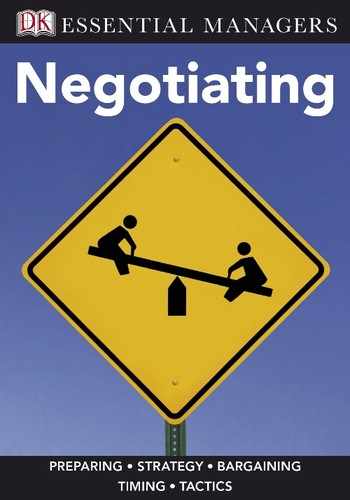Building Relationships
Contract negotiators are typically task-oriented and pragmatic, tend to focus on negotiating specific issues, and do not invest in building relationships. Relationship negotiators, in contrast, invest first in building good relationships before negotiating on specific issues. Effective negotiators need to be skilled at both approaches.
Making a personal connection
Today, more and more Western negotiators value what the Asian, Arabian, and Latin societies recognized thousands of years ago—the value of good relationships. Experienced negotiators invest in building relationships because good relationships “oil” the negotiation process and make it more efficient. For example, Former US Secretary of State James Baker has stated that he has seen this occur time and again—that once negotiators have a good relationship, even the most difficult and conflict-inducing issues have been resolved, simply because the negotiators were more transparent and flexible with each other.

Making contact
Effective negotiators know that, in the long run, good relationships are best built through face-to-face interaction rather than by talking on the telephone or corresponding via email. Where possible, try to create opportunities to socialize with the other party before the negotiations begin. This is not to talk about the negotiations and “discover secrets,” but rather to get to know the other person better and connect with them on a human level. The atmosphere of the negotiation process may be very different if you are not meeting your counterpart for the first time at the negotiation table.
Interacting informally
In your interactions with the other party, take advantage of any opportunities to genuinely express your appreciation and congratulate them for their achievements. Use small talk and humor where appropriate—taking opportunities to interact informally will help you build a relationship. Be cautious, however, and use “safe humor” in order not to risk offending the other party. Where possible, focus on the common ground between you. You may find that similarities are personal (the same hobby, for example) or ideological, such as a similar business philosophy. Such findings offer a solid start for building a long-lasting, friendly, and constructive relationship.
Thinking long-term
You should also protect the “face,” or dignity, of others and treat them with respect when you are taking more from a deal than they are. This is especially helpful when you are trying to build long-term relationships. In team negotiations, it can work well to include socially skilled negotiators in your team who can take greater responsibility for building lasting relationships, while others (contract negotiators) focus more on the specific issues.
Being prepared
When US businessman Robert Johnson was looking for investment to enable him to create a new cable channel, Black Entertainment Television, he did his homework. Before pitching the idea to John C. Malone—one of the industry’s biggest players—he learned about Malone’s business philosophy of believing in the entrepreneurial spirit and of individuals helping themselves rather than relying on others. When they met, Johnson was able to connect with Malone by highlighting their shared business values. This similarity provided a positive start for their successful business negotiations.
